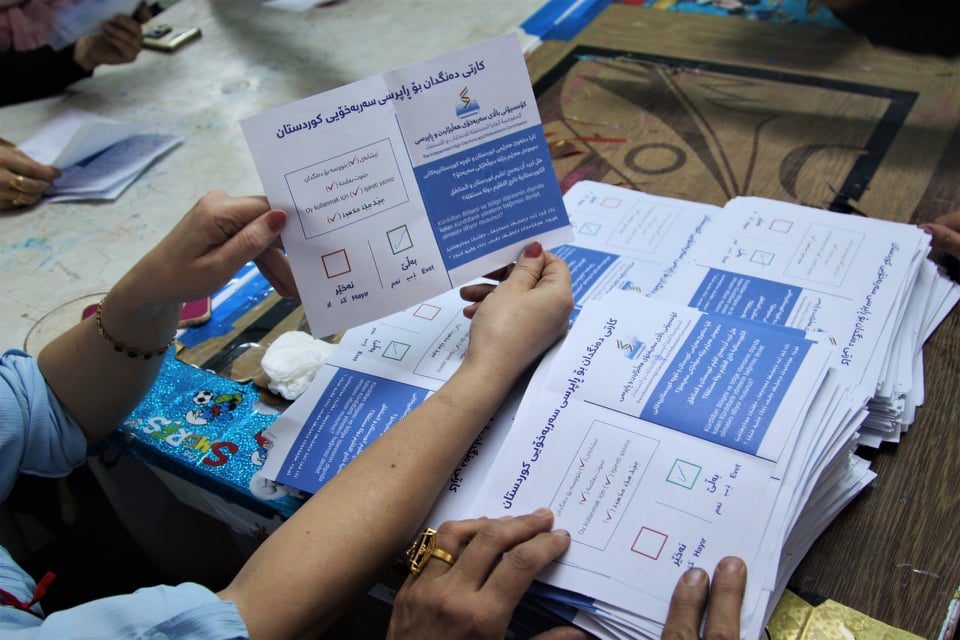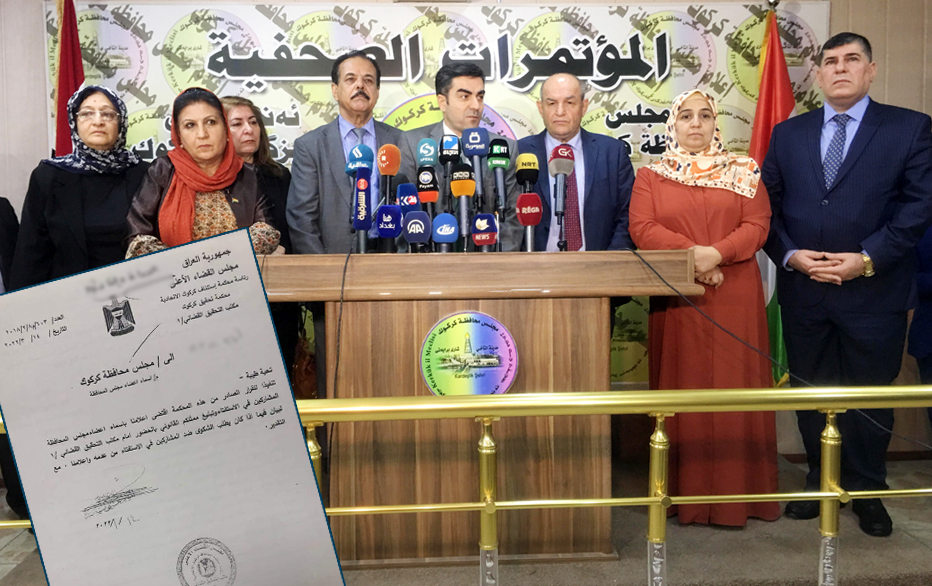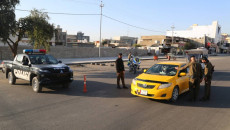The Kirkuk court addressed the dissolved provincial council requesting the names of the members who participated in the independence referendum of the Kurdistan Region, even though the council was dissolved more than three years ago.
The letter issued by the Judicial Investigation Office of the Kirkuk Investigation Court on March 14, 2022 was addressed to the Kirkuk Provincial Council and stated, "In implementation of the decision issued by this court, we have to be informed of the names of the provincial council members participated in the referendum."
The court letter calls on the council for "the presence of the legal representative of the Council before the Judicial Investigation Office to clarify whether or not it seeks a complaint against the participants in the referendum."
In August 2017, the Kirkuk Provincial Council decided, in a meeting boycotted by Arab and Turkmen representatives, that the referendum would also include Kirkuk, given that 26 of the 41 members of the Provincial Council belonged to the Kurdish Brotherhood List.
In the independence referendum that was organized in the Kurdistan Region and the disputed areas, 92% of the participants voted for independence, but after 21 days, specifically on October 16, 2017, the armed forces of the federal government re-established their control over Kirkuk and the rest of the disputed areas, and the Kurdistan government was forced to withdraw from those regions decided to freeze the result of the referendum following pressure from Baghdad.
Kirkuk, located 238 kilometers north of Baghdad, is an ethnically mixed province for 1.7 million Kurds, Turkmen and Arabs. It has long been at the center of disputed territories between Baghdad and Erbil.
In late 2019, the Iraqi parliament, in response to the demands of protesters of October demonstrations in several Iraqi cities, made amendments to the Provincial Councils Law No. 12 of 2018, with the exception of the Iraqi Kurdistan Region IKR, and suspended those councils.
KirkukNow obtained a copy of the investigation court letter, but could not obtain statements about the matter and the reason for its disclosure at this time.
Jiwan Hassan, a Kurdish member of the suspended Kirkuk Provincial Council since 2019, told KirkukNow, "The court letter does exist, but we are surprised why this file has been revived after so long time," arguing that other parties are pushing for it without giving further clarifications.
"This case dates back to a year after the referendum, but we have a legal decision by the Federal Court that states that the participants in the referendum will not be subjected to any legal or criminal trial and its effects will be rescinded," according to Hassan.
On November 20, 2017, the Iraqi Federal Court ruled that the referendum was unconstitutional and nullified all its political and legal consequences.

Kurdish and Turkmen families were deprived of their properties and forced out of the city back in the 1970s and 1980s, only to be replaced by Arab families who moved in from other parts of Iraq.
After the fall of Saddam Hussein regime in 2003, many Kurds and Turkmens were able to regain ownership of their properties and move back into Kirkuk, creating friction with other groups.
Kirkuk is one of the main disputed areas in addition to Diyalah, Ninewa and Salahaddin that a three-stage process outlined in Article 140 of the Iraqi constitution in 2005, stipulating normalization, a population census and a referendum on the status of the territories, was drawn to put an end to Kurdistan region government KRG and Iraqi Federal government dispute over these areas, yet it has not been held up today.
"The people responsible for the referendum were and still occupy high positions in Baghdad, including ministers and lawmakers, and even the presidency, meaning that the situation has returned to its normal conditions, while the issue is used to intimidate members of the provincial council," Hassan wondered.
The Iraqi government called on the Kurds for dialogue and urged them to cancel the results of the referendum then. In an unprecedented escalation, Iraqi troops for the first time since 2003, ousted Kurdish troops in October 2017 upon request of Iraqi parliament to deploy federal army in the disputed territories the Kurds were controlling part of it since fall of Saddam regime in 2003 and others following the so-called Islamic State ISIS control of one third of Iraq in 2014.
The two main Kurdish fractions Kurdistan Democratic Party KDP, led by Masoud Barzani, president of Kurdistan region in 2017, and part of the Patriotic Union of Kurdistan PUK then led by co-presidents, son and cousin of late Iraqi president Jalal Talabani, with some other Kurdish parties pushed for the referendum to include Kirkuk as well.
The referendum and its aftermath left the two long-term U.S. partners KDP and PUK accusing each other of betraying the Kurdish cause by putting Kurdish control of Kirkuk and its oil at risk by including it in the referendum, or by cooperating with non-Kurdish groups that spilled Kurdish blood in Kirkuk.
The period of Kurdish control was unpopular with many of Kirkuk’s Arab and Turkman residents, however, who were subjected to various forms of politically motivated violence and forced displacement.
Currently, Iraqi army, the Iraqi security forces ISF of local and federal police, Brigade 61 of Special Forces along with Shiite paramilitary of Popular Mobilization Forces PMF, are under Kirkuk joint operations’ command, an umbrella for the security forces running the security of Kirkuk province.






